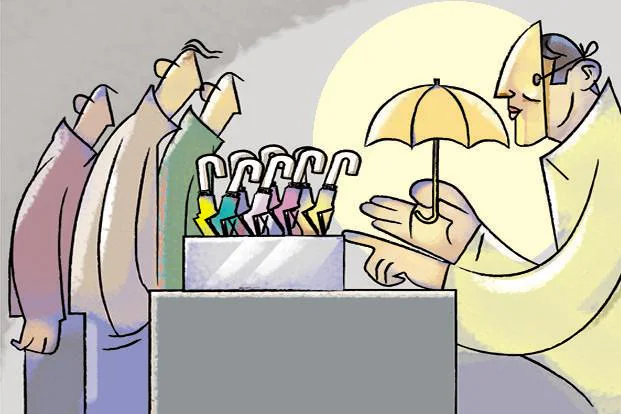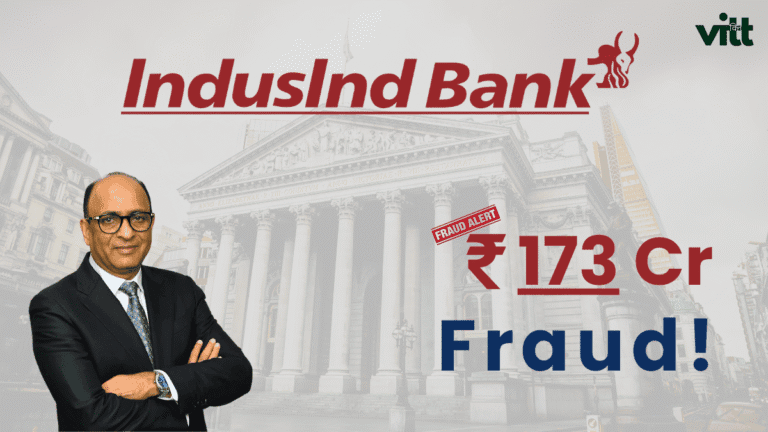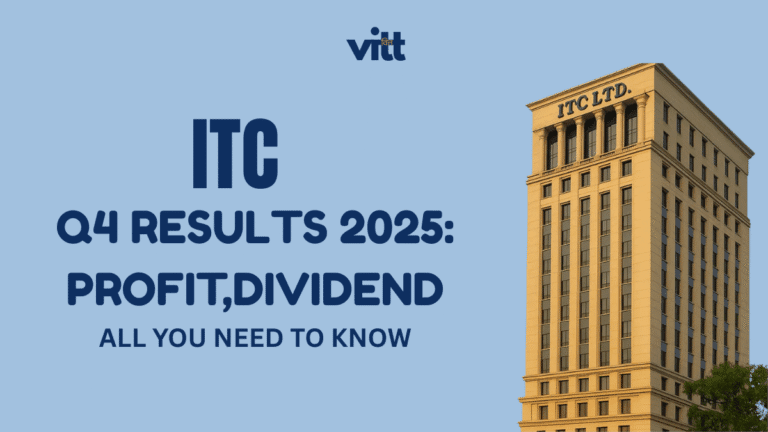

Let’s be honest, dealing with banks can be a mixed bag. You trust them with your hard-earned cash, hoping for solid advice and products that actually help you out. But what happens when that trust is broken? There’s a sneaky problem plaguing the Indian banking scene called “financial mis-selling,” and it’s leaving too many folks holding the bag with products they never needed or wanted, sometimes costing them dearly. If you’re tired of feeling like just another sales target, this guide is for you. We’ll break down how to spot these dodgy deals and, more importantly, how to protect your financial well-being.
So, What’s This “Mis-Selling” Shenanigan Anyway?
Simply put, financial mis-selling is when bank staff, for whatever reason (and we’ll get to that), nudge you, coax you, or downright pressure you into buying financial products or services that are just plain wrong for your life, your money situation, or how much risk you’re comfortable with.
It’s not always cloak-and-dagger stuff. It can be more subtle, like:
- The Half-Truth Hustle: They’ll sing praises about all the wonderful benefits but conveniently “forget” to mention the risks, the real costs, or how long your money will be locked away.
- Comparing Apples to Oranges (Badly): Making one product sound like a superstar by unfairly trashing another, or just not giving you the full picture.
- The “Act Now or Else!” Pressure Cooker: Trying to rush you into a decision with a “limited-time offer” vibe.
- Square Pegs, Round Holes: Pushing, say, a high-risk investment on your retired aunt who just wants her savings to be safe, or talking you into a complex ULIP (Unit Linked Insurance Plan) when all you needed was basic life cover or a good old Fixed Deposit. Remember that story from the video that got us talking? An elderly housewife, no income of her own, getting sold an income protection policy – that’s mis-selling in a nutshell. (Economic times)
This Isn’t Just a One-Off Grumble: Mis-Selling is a Real Headache in India
And believe me, this isn’t just a few isolated incidents we’re talking about. The numbers and stories paint a pretty stark picture:
- Get this a survey by 1 Finance Magazine (Outlook Money) found that a whopping 57% of bank relationship managers in India admitted they’ve mis-sold products. Why? Mostly because of crazy sales targets.
- The folks at IRDAI (the Insurance Regulatory and Development Authority of India) are swamped with complaints about “unfair business practices” from banks and brokers. And guess what’s a big part of that? Yep, mis-selling. In the 2022-2023 financial year, 20% of the 124,293 complaints against life insurers were about these shady dealings.(Cafemutual)
- Then there are the real-life horror stories. The Economic Times shared one about TATA AIA where the NCDRC (the top consumer court) had to step in and order a full refund because someone was mis-sold a policy. Imagine the stress and financial hit that person took.
Why Are Banks Doing This? Peeking Behind the Curtain
It’s not usually because bank tellers are secretly villains. There are some systemic issues pushing this:
- Target Terror: Bank employees are often under incredible pressure to meet sky-high sales targets for everything from loans to insurance. Sometimes, it’s less about what you need and more about what they need to sell to keep their jobs.
- The Commission Game: Let’s face it, big commissions for selling certain complex products can be a powerful motivator. If an RM gets a fatter paycheck for selling you ULIP “X” over simple FD “Y”, guess which one they might push harder? (Outlook Money and Deccan Herald have touched on this).
- “Oops, Didn’t Know That!” (Knowledge Gaps): It’s a bit scary, but that same 1 Finance Magazine survey found that 85% of RMs couldn’t even tell the difference between direct and regular mutual funds. If they don’t fully get the products, how can they advise you properly?
- Jargon Overload: Financial products can be complicated beasts, wrapped up in confusing language. If you’re not a financial wizard, it’s easy to get bamboozled.
- They Know More Than You Do (Usually): Banks have all the detailed info. If they’re not playing fair, that information gap can be used against you. (Moneylife)
Your Game Plan: How to Outsmart the Mis-Sellers and Keep Your Money Safe
Alright, enough doom and gloom. While the watchdogs like RBI and IRDAI are trying to clean things up, you’re your own best bodyguard in this financial jungle. Here’s how to armor up:
- Channel Your Inner Detective (Do Your Own Digging):
- Don’t just take their word for it. Before you even think about signing up for anything, go online, read reviews, compare products. What are the real risks? What are ALL the charges (especially those sneaky hidden ones)? How long is your money tied up?
- That video we talked about? Solid advice: figure out every single cost and really think through the good, the bad, and the ugly.
- Question Everything (Seriously, Don’t Be Shy):
- Why this product? Why for me? Does it actually make sense for my age, my income, what I’m saving for (retirement? kid’s college? just a rainy day?), and how much risk I can stomach?
- If they use fancy words you don’t get, make them explain it in plain English.
- Read the Darn Paperwork! (Yes, All of It):
- This is HUGE: Never, ever sign a blank form. And don’t sign anything you haven’t read cover-to-cover and actually understood. The devil really is in those tiny details – the terms, conditions, charges, what happens if you want out early.
- If they promise you the moon verbally, get it in black and white. “Trust me” doesn’t cut it.
- Know About the “Cooling-Off” Lifesaver (Free-Look Period):
- Most insurance policies in India come with a “free-look period.” It’s usually 15 days (sometimes 30) from when you get the policy documents. If you read it and think, “Nope, this isn’t for me,” you can usually cancel it and get most of your money back without huge penalties. Use it!
- The “Is This REALLY For Me?” Gut Check:
- What’s great for your 25-year-old cousin who loves a bit of financial adventure is probably a terrible idea for your 65-year-old dad who needs his savings to be safe. Make sure the product actually fits you and your life.
- Spot the Hard Sell and Walk Away:
- If you feel like you’re being backed into a corner with “this amazing offer ends in 5 minutes!” or “there are only two left at this price!” – alarm bells should ring. Good financial decisions need time, not pressure.
- Get a Second (Unbiased) Opinion:
- Still not sure? Talk to a SEBI Registered Investment Advisor (RIA) who charges you a fee for their advice, rather than earning commissions from selling products. They’re legally bound to put your interests first.
- Flex Your Consumer Rights (Know What You’re Entitled To):
- Check out the RBI’s Charter of Customer Rights. You’ve got the right to be treated fairly, to get clear and honest information, to be sold stuff that’s actually suitable for you, to have your privacy respected, and to have your complaints heard.
The Big Guns Weigh In: What RBI and IRDAI Are Doing
It’s good to know that the top financial watchdogs in India aren’t just sitting twiddling their thumbs:
- The Reserve Bank of India (RBI) has put banks on notice, saying they’re taking mis-selling “very seriously” (The Financial Express reported this). They’ve also beefed up the Banking Ombudsman Scheme so you can complain about mis-selling of things like insurance or mutual funds by banks (Mint and RBI itself have talked about this).
- The IRDAI is also cracking down on mis-selling in the insurance world, trying to make things more transparent and keep everyone honest. (IRDAI)
“Help! I Think I’ve Been Mis-Sold!” – Your Action Plan:
- First Stop: Your Bank. Write a formal complaint to the bank’s own grievance team. Put it all down clearly.
- Next Up: The Banking Ombudsman. If the bank ignores you for a month, or you’re not happy with their solution, take your complaint to the RBI Banking Ombudsman. It won’t cost you anything.
- Insurance Woes? IRDAI/Insurance Ombudsman. For problems with insurance mis-selling, you can hit up IRDAI’s complaint system (IGMS) or go to the Insurance Ombudsman.
- Still No Joy? Consumer Courts. You can also take your fight to the Consumer Dispute Redressal Forums (District, State, or National level).
Vitt’s take
it’s your money, and you have the right to understand every product you’re offered and to say ‘NO’ to anything that doesn’t feel right for you. Don’t let jargon or sales pressure cloud your judgment.
We encourage you to use the tips in this article, ask tough questions, and always prioritize your financial goals and comfort levels. Beyond just avoiding mis-selling, building a solid understanding of personal finance is key to a secure future. Explore our other resources on [Business news, Startup news] to continue your journey towards financial clarity and control.“







